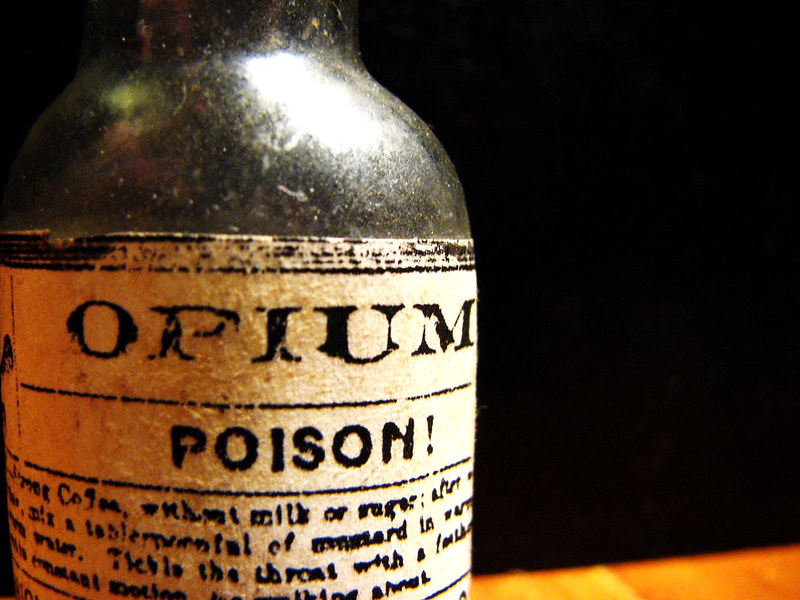Photo Credit: John Graham || Many poisons are pleasant initially, but lead to death.
The subtitle I would give to this series would be “Have the courage to do up-in-credit and shortening trades.” This very irregular series dates back to the first real post at this blog. There are times when the bond market is running so hot that it seems those who are prudent risk-takers are fools, as they are collapsing risk positions and conserving capital to play for another day.
Back in 2002, it was as if I was on a seesaw. Managing money for the fastest growing life insurer in the US, I ran two up-in-credit trades and two down-in-credit trades where I moved a large portfolio many 2-3 credit notches trading individual bond issues on the bond markets, while at the same time managing interest rate risk. During the up-in-credit phases, the passphrase was “yield is poison.” Really, we couldn’t find much that we liked, so we would trade lower rated bonds for higher rated bonds, and give up a small amount of yield.
My brokers would occasionally say to me something like this, “You’re different. You will do trades that most managers won’t do. Your trades are the ones we would do, but most bond managers are so yield hungry that they will never give up yield.” My comment back to them wassometing like, “When risks are not being appreciated, you can either give up yield, or give up capital. I have to protect capital.”
Now, I had a great staff of credit analysts behind me. I would never have as good without them. I also studied the corporate bond math to fully break down what made a good trade after my initial failure when thrust into the position of corporate bond portfolio manager. That enabled me to understand what the proper tradeoffs were, which made me realize that often a lower yielding bond was more valuable than a higher yielding bond. Thus, sometimes it made sense to lose yield, but gain something more secure.
Today we face low Treasury yields and low credit spreads. There isn’t much loss from aiming for safety. If you are aiming for income, why not take a step back for a year or two, and gain greater safety? Yes, you might see further tightening of credit spreads. You might see the Fed step in to do yield curve control, misguided as it is. There are always foolish momentum trades that perish at the end of bull markets.
The only real risk from not reducing bond market risk is that the Fed will eat up credit and duration risks until we have high inflation, a war, or currency controls (where we try to cheat foreign creditors).
You can improve the probability of being paid today without giving up much yield. Take this opportunity, and upgrade the credit quality of your portfolio.

